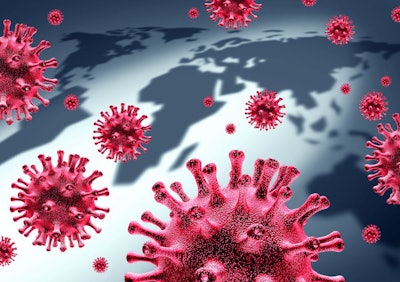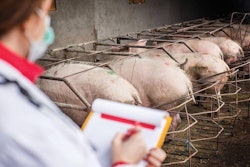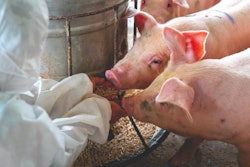
A new initiative in the Asia-Pacific region aims to give early warning of possible emerging disease threats.
As public health experts call for action to treat the causes of pandemics, a new report sets out the need to implement changes to how we live.
Like Ebola, SARS, and MERS, the coronavirus causing the current COVID-19 pandemic is a zoonotic disease. Originally present in animals, this virus developed the ability to jump species to humans. In the case of COVID-19, the results have been devastating in human and economic terms around the world, reports the Australian Broadcasting Corporation (ABC).
To prevent another pandemic, human, animal and environmental health need to be considered together, according to a recent report from the United Nations Environment Programme (UNEP) and the International Livestock Research Institute (ILRI).
Published last month, the report warns that further outbreaks are highly likely unless we take active measures to prevent other diseases crossing into the human population. In their conclusions, the authors suggest 10 measures to prevent future pandemics.
Stressing the urgency of the current situation to ABC was Inger Andersen, chief executive of UNEP.
She said that, during the past century, novel coronaviruses have caused six major disease outbreaks. Furthermore, 75% of emerging infections are zoonoses. For COVID-19, it is the ability of the virus to rapidly infect new hosts that has made it among the world’s worst disease outbreaks, according to Andersen.
Need for proactivity, tackling root causes
It’s possible that an even more devastating disease could emerge at any time.
While this development is predictable, it is a human failing that we remain unprepared, said Andersen. In response to this danger, she urged greater vigilance, and a new focus on tackling the root causes of emerging diseases. She identified these as the destruction of natural habitats, intensive farming and the growing global demand for meat.
Also according to ILRI Director General Jimmy Smith, the COVID-19 pandemic was a predictable event. It was a result of ever more intensive interactions among humans, animals and the natural world, he said in the ABC interview.
And the bad news is that these interactions are increasing. Key drivers are population growth, rising incomes and the ever greater encroachment of humans on the natural world, he added.
With lockdowns, stock market losses and unemployment, the economic cost of the current pandemic have been estimated at US$13 trillion.
From the University of Sydney, Australia, Associate Professor Navreet Dhand called for systems to be strengthened to deal with zoonotic diseases, and to mitigate against the risks.
Zoonotic disease control in Asia-Pacific
Efforts are underway to prevent zoonotic diseases from jumping to humans, according to Dhand.
Funded by the Australian government, a program has recently been set up to support veterinarians in Southeast Asia and the Pacific nations. They will receive tools to help them better investigate and treat outbreaks, and so stop infectious diseases spreading to people.
From the University of Sydney, Dhand is leading the multi-agency program involving 40 animal health experts from Australia, New Zealand and Asia.
“To protect humans from these diseases, we must look for pathogens and disease ‘upstream’ in domestic animals and wildlife, before they spread to the human population,” he said.
Working with animal health authorities and educators in 11 countries, the consortium will strengthen on-the-job training for veterinarians and para-veterinarians.
By supporting improvements in disease surveillance, changes in animal health patterns can be spotted sooner. As a result, early intervention and preventative actions can be taken to halt the spread of disease, said Dhand.
At a cost of AUD4.3 million, the program is scheduled to continue for three years. It will support animal health in Cambodia, Fiji, Indonesia, Laos, Myanmar, Papua New Guinea, Philippines, Solomon Islands, Timor-Leste, Vanuatu and Vietnam.
View our continuing coverage of the novel coronavirus (COVID-19) pandemic.















